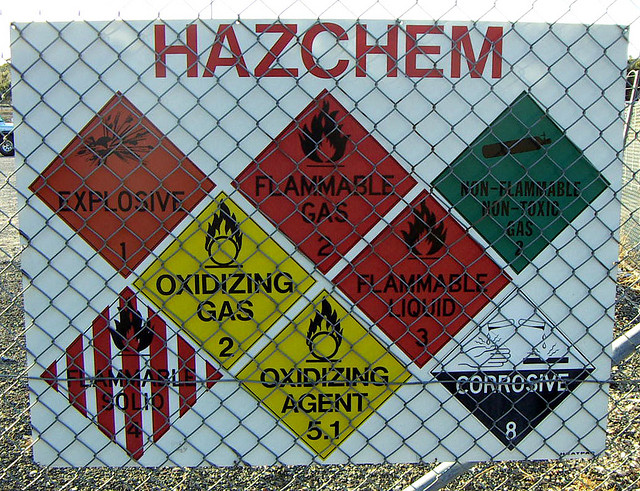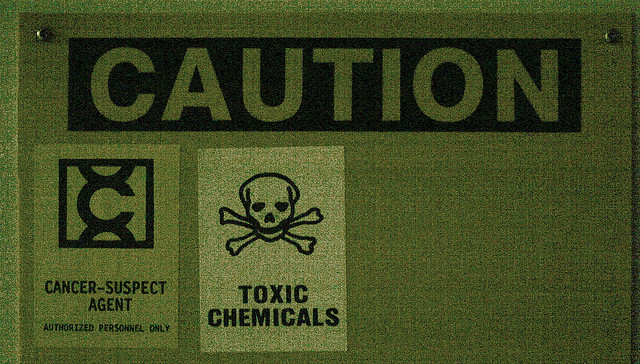On January 30, the U.S. Department of Labor’s Office of Federal Contract Compliance Programs (OFCCP) published a proposal to revise its requirements for covered Federal Government contractors and subcontractors, including federally assisted construction contractors and subcontractors. This proposal would implement provisions in Executive Order (EO) Number 13672, which President Obama issued on July 21, 2014 (I blogged about the E.O. here). These revisions expand anti-discrimination responsibilities of federal contractors and federal grant recipients, to cover “sexual orientation” and “gender identity.” Once implemented, employment practices in these workplaces will match private employers’ responsibilities under a growing number of state laws, and under some federal court cases interpreting Title VII of the Civil Rights Act of 1964 (Title VII).
Audit, Compliance and Risk Blog
Department of Labor Proposes More Anti-Discrimination Rules For Federal Contractors
Posted by Jon Elliott on Thu, Feb 12, 2015
Tags: Corporate Governance, Business & Legal, Employer Best Practices, Employee Rights, EEOC, NLRB, Disability benefits
Congress Updates Chemical Facility Anti-Terrorism Standards
Posted by Jon Elliott on Mon, Feb 02, 2015
In 2007, Congress added a provision to the Department of Homeland Security (DHS) budget, directing DHS to create a program to identify chemicals that might be tempting targets for terrorists, and to require facility that handle sufficiently large quantities of these chemicals of interest to establish security programs subject to DHS oversight (“Section 550”). DHS responded to Section 550 by issuing Chemical Facility Anti-terrorism Standards (CFATS) rules, requiring compliance to begin in 2008.
Tags: Corporate Governance, Business & Legal, Employer Best Practices, Health & Safety, Environmental risks, Environmental, Hazcom, Workplace violence
Hazardous Chemicals: Our Communities Have the Right to Know
Posted by STP Editorial Team on Wed, Jan 14, 2015
Our communities have the right to know when they are at risk of exposure to dangerous substances from accidental releases such as, but not limited to, chlorine, ammonia, hydrochloric acid, and sulfur dioxide. The US Environmental Protection Agency (EPA) agrees. In 1986 EPA created the Emergency Planning and Community Right-to-Know Act (EPCRA) to help communities plan for just such emergencies. EPCRA requires that federal, state, and local governments, Indian tribes, and industries be prepared for hazardous chemical emergencies. It also requires facilities to follow all recordkeeping requirements and report the storage, use, and release of hazardous chemicals to federal, state, and local governments.
Tags: Corporate Governance, Business & Legal, Employer Best Practices, Health & Safety, Employee Rights, Environmental risks, Environmental, EHS, EPA, Hazcom
The Occupational Safety and Health Administration (OSHA) has updated its recordkeeping rule to expand the list of severe injuries (including amputations) that all employers must report. An increase in good reporting and recordkeeping is a best management practice and an essential part of helping employers ensure and maintain the safest working environments for their employees.
Tags: Corporate Governance, Business & Legal, Employer Best Practices, Health & Safety, OSHA, Employee Rights, Disability benefits
Pardon? Did You Say Something About Industrial Noise And Hearing Loss?
Posted by STP Editorial Team on Wed, Nov 12, 2014
Yes, we did. We said that noise, as a by-product of industrial processes, is one of the most pervasive occupational health concerns, contributing to approximately 16% of the disabling hearing loss in adults on a worldwide scale. Ten million people in the U.S. alone have a noise-related hearing loss and twenty-two million workers are exposed to potentially damaging noise each year. In 2007 the National Institute of Occupational Safety and Health (NIOSH) estimated that approximately 23,000 cases of occupational hearing loss were reported as causing hearing impairment and that this alone accounted for 14% of occupational illness that year.
Tags: Corporate Governance, Business & Legal, Employer Best Practices, Health & Safety, OSHA, Employee Rights
Effective Traffic Control Management Assures Worker Safety
Posted by STP Editorial Team on Thu, Oct 30, 2014
We drive by the “Be Work Zone Alert” billboards all the time, reminding us to slow down and drive safe through road construction zones, with compassion-provoking reminders like, “Be alert, our mom’s at work.” And indeed, rather than feel annoyed at the roadwork construction that delays our driving progress, let’s continue to be mindful of the real risks that the workers face every day on the job.
Tags: Corporate Governance, Business & Legal, Employer Best Practices, Health & Safety, Training, EHS, Transportation
Reconsidering External Threats From Terrorists and Other Criminals
Posted by Jon Elliott on Tue, Oct 28, 2014
Although most “workplace violence” incidents are low-level psychological or physical altercations between co-workers, Canadians have just been tragically reminded of the dangers of murders by interlopers. Government buildings are the likeliest targets for terrorism, and financial and retail buildings the likeliest targets for non-political criminals, but all workplaces face at least some of these most severe risks. There’s no way to eliminate these risks, but commonsense workplace security measures can reduce them. This note discusses approaches to evaluating and reinforcing security against external threats – which are important subsets of broader workplace violence prevention efforts.
Tags: Corporate Governance, Business & Legal, Employer Best Practices, Health & Safety, Employee Rights, Workplace violence
Every employer probably should know that employees have a right to receive at least the “minimum wage” for the hours they work. But employers may or may not focus on the fact that there’s not just one “minimum wage” – there are many, depending on the jurisdiction, the employer’s business or governmental sector, and the employee’s status. The federally-mandated minimum wage for most employees is $7.25 per hour (set in 2007 under the Fair Labor Standards Act (FLSA)), but some categories of workers can be paid lower wages, and some states require higher wages. Employers with scattered and diverse activities and work forces need to track developments under each applicable situation.
Tags: Corporate Governance, Business & Legal, Employer Best Practices, Employee Rights
Earthquakes: Are You Ready to “Shake Out” on October 16?
Posted by Allison Campbell on Tue, Oct 14, 2014
Once a year in our office, someone walks through the halls ringing an old-fashioned school bell. We immediately stop what we are doing, crawl under our desks and brace ourselves, and wait. A few moments later, one of our earthquake marshals comes by to tell us that it is safe to leave the building, and we carefully make our way down the stairs to the designated meeting spot. After checking the staff list and verifying that everyone made it out “safely,” our marshals let us return to our work. It wasn’t an earthquake—this time.
Tags: Corporate Governance, Business & Legal, Employer Best Practices, Health & Safety, Environmental risks, Environmental
OSHA: Providing Lockout/Tagout to Protect Workers from Equipment
Posted by Jon Elliott on Wed, Oct 08, 2014
Most Occupational safety and Health Administration (OSHA) electrical safety and machine guarding standards apply to protect employees from electrical and kinetic energy hazards during routine operations. But OSHA also requires protection during equipment servicing and maintenance, lest employees be injured by “unexpected” equipment energization, start up, or release of stored energy. OSHA’s Control of Hazardous Energy Standard—more often called the Lockout/Tagout or “LOTO” Standard after its primary compliance requirements—requires employers to establish and implement safety procedures to control such hazardous energy.
Tags: Corporate Governance, Business & Legal, Employer Best Practices, Health & Safety, OSHA, Employee Rights, Environmental risks, EHS, Hazcom










